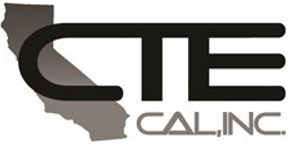Engineers often are given credit for the ability to fix anything, be it plumbing, mechanical, or computer-based problems. While we’re happy to be recognized as solvers, it can be difficult to explain the particulars of our engineering emphasis. While some of us would like to do everything, all engineers are forced to focus on a particular discipline to be effective in the professional world. This article will explore the particular discipline of Geotechnical Engineering, a branch of Civil Engineering relating to the Earth, and the numerous materials that make up her crust.

Geotechnical Engineering is quite literally the foundation of all other civil engineering disciplines. Its main goal is to harness the abundant natural materials available on Earth’s surface to build useful structures like dams, levees, roads, bridges, and buildings of all kinds. A Geotechnical Engineer will also evaluate the numerous geological hazards that arise from natural processes, including earthquakes, fault rupture, liquefaction, settlement, flooding, corrosion, and many more. Until floating cities become the norm, Geotechnical Engineers will stay busy figuring out how to support everything we build, and doing it safely.
With these lofty goals in mind, let’s drill down on the specifics of soil engineering and discuss why a Geotechnical Engineer must investigate, evaluate, and test a site before anything is built.
Geological Hazards
A lot can go wrong when you build with natural materials. Part of a Geotechnical Engineer’s job is to think of all the ways something can fail. Then, we produce solutions to address each of those cases, hopefully resulting in a long-lasting, safe structure. Some ways that geologic processes can cause the loss of life, limb, and property include:
- Settlement
- Soil Expansion
- Slope Failure
- Bearing Failure
- Flooding
- Seepage
- Seismic Shakedown
- Liquefaction
- Lateral Spreading
- Surface Fault Rupture
- And Many More…
CTE Cal’s engineering professionals have academic and practical experience in evaluating and mitigating these hazards using modern geotechnical and geological professional standards of practice. If your project lies on land with any of these hazards, a CTE Cal engineer can help investigate, evaluate, and mitigate the risks that come from building on our planet’s crust.
Contact us at info@ctecal.com if you’d like to hear more about our professional services. If you’d like to be involved in our mission to mitigate Mother Earth’s hazards, please send your resume to apply@ctecal.com.

